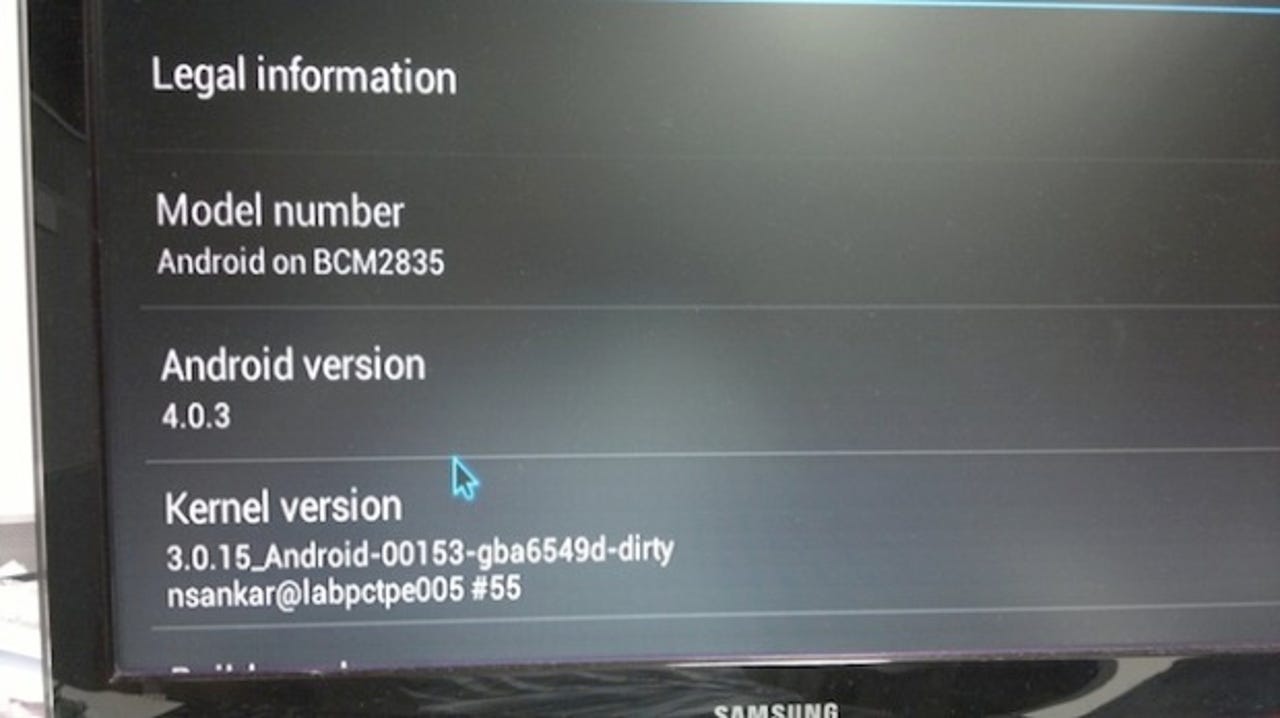Raspberry Pi to get Android 4.0 Ice Cream Sandwich


The Raspberry Pi Foundation has announced Android is coming to its tiny device. More specifically, Android 4.0 (Ice Cream Sandwich) is being ported over to the credit-card sized Linux computer.
Ever since it launched, the Raspberry Pi has been snapped up by enthusiasts as quickly as children grab candy in Willy Wonka's Chocolate Factory. As such, nobody should be surprised to learn that Android is getting official support:
This implementation uses a different kernel and VideoCore binary image from the one available on GitHub, which is why we’ve been keeping quiet about it so far. We’re investigating the feasibility of converging the two code lines to produce a single common platform as soon as we can, at which point we hope to release the sources for you to play with.
So far, the port is going well. Hardware-accelerated graphics and video are a go. AudioFlinger (Google's audio system for Android devices) support is the only major missing piece at the moment, according to the foundation. Here's a quick demonstration:
Unfortunately, there is no date to look forward to for Android 4.0 support. Based on the video above, however, I would expect a release sometime later this month.
Last month, Google open-sourced Android (Jelly Bean) 4.1 for third-party modification. It's currently unclear why the Raspberry Pi team isn't going with Jelly Bean, but I think it's safe to assume it's because they started work on the port before the latest version of Android had been made available to all.
For the uninitiated, the Raspberry Pi is sold uncased and comes with an Ethernet port, an HDMI port, two USB ports, and an SD card slot. While it's powered by a 700MHz ARM chip and comes with 256MB of RAM, the device requires that you supply your own keyboard and monitor. The currently-available Model B costs £22 ($35), although Model A for £16 ($25) is coming later this year.
See also: